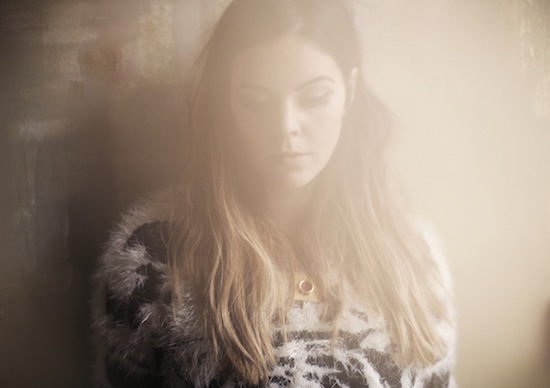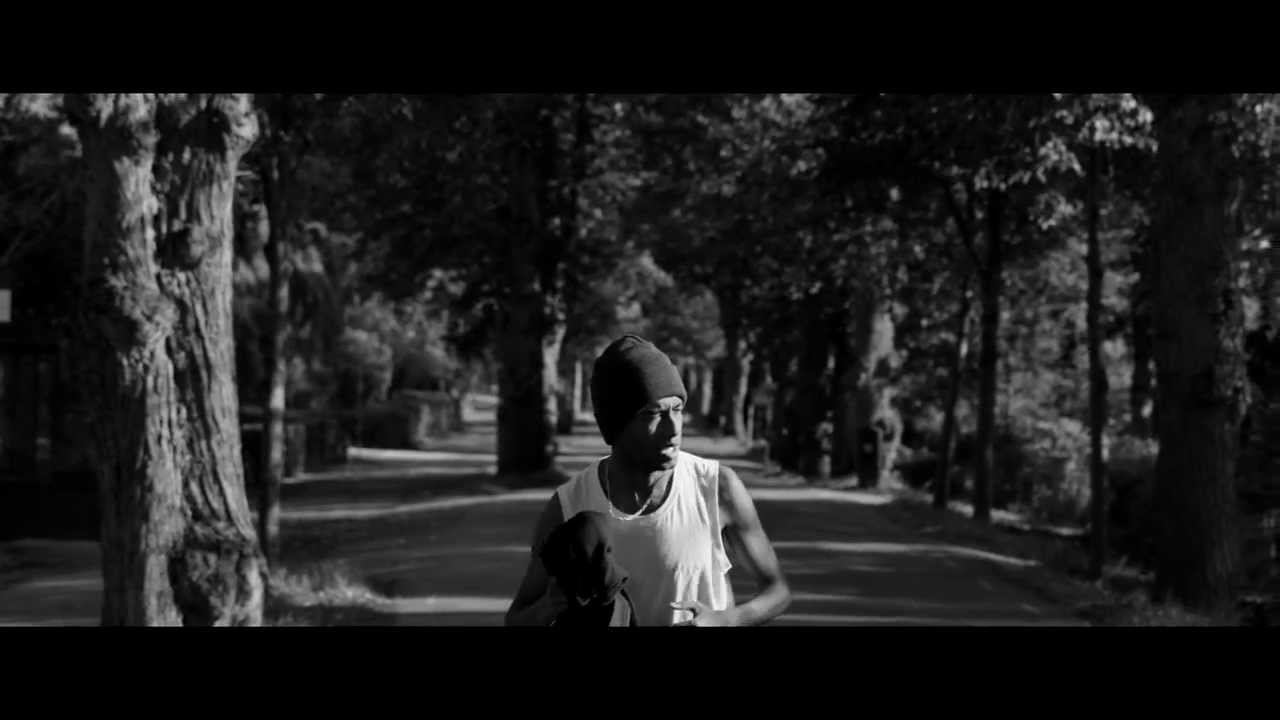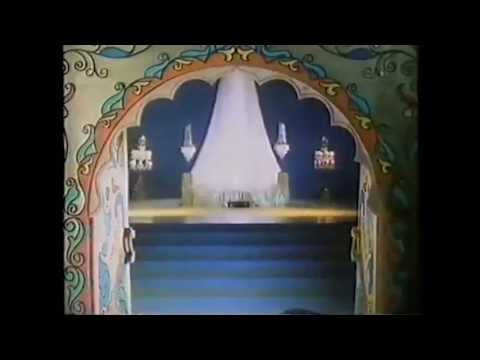It’s a Sunday morning in September 2011 and I’m the proud owner of a mild-to-moderate hangover. I’m in Stockholm and spent the previous evening interviewing Maria Lindén and Fredrik Balck of I Break Horses.
The interview was a joy. As opposed to the more usual handful of snatched minutes before a gig, or the über-awkwardness of a phone interview, we had spent an entire evening chatting at a cosy restaurant in the city’s bohemian Södermalm district, drinking mojitos into the wee small hours. Amidst the general bonhomie, we had discussed at length the pair’s debut album, Hearts – a fine record that had artfully melded icy electronica to fuzzy shoegaze.
Fast-forward a couple of years and – over a stuttering Skype video link – Maria and I are reminiscing. “I really loved our discussion,” she tells me. “We should do all interviews in restaurants with cocktails.” Indeed we should.
Tonight, however, we have no such luxuries, but Maria has a new album to talk about and Chiaroscuro is a glorious step-change for I Break Horses. The opaque guitar throb of Hearts has been replaced by layers of gorgeous synths and the juddering blips of laser-guided beats. Some tracks – such as the lead single ‘Denial’ – almost sound like huge dance anthems – listen in full below:
As we talk (and as she tries to fend off incoming Skype calls from her mother), it’s apparent that much has changed for Lindén since our meal in Stockholm. She has quit her day job to focus on music and has managed to overcome the crushing stage fright that threatened to derail the early progress of I Break Horses. In many ways, Chiaroscuro is almost a solo album (with Balck providing initial ideas for lyrics) and is a further insight into Lindén’s soul as the singer wrestled with the most tempestuous year of her life.
I’m always struck by just how shy and sensitive Lindén appears, and – paradoxically – by just how much of her deepest emotions she is prepared to invest in her art and release to the outside world. It’s perhaps what makes I Break Horses such a compelling listen.
When we last spoke, you were about to play your first live show. Since then, you’ve toured America and played shows with the likes of Sigur Rós. How has it been for you over the last two years?
Maria Lindén: Well, it’s been a huge step for me to play live shows. I was terrified about going onstage – I know we spoke a lot about that when we met in Stockholm. I now actually enjoy it and I never thought that day would come. That’s a big thing that has happened. It’s not that I am jumping around on stage – I’m not exactly Madonna – but I do like it. It’s a nice feeling.
That’s amazing – did you just gradually start to enjoy playing live or did you have an epiphanic moment?
ML: It was like that kind of therapy when you force yourself to do the things you are most scared of. Is it called exposure therapy? [Immersion therapy, Phobias Ed] I just forced myself to do it.
Congratulations – that’s a huge leap from being terrified to being able to play in front of thousands of people at Sigur Rós’ recent Wembley Arena show.
ML: I had been pretty stressed out in the months leading up to the Sigur Rós tour! However, the Sigur Rós audience is more of a classical music audience – they are very quiet and listen to every single note and then they wait and then they applaud. Of course the first show was terrifying as I had never experienced that type of super-quiet crowd. It felt like there were years in between the songs as it was so quiet. Also, when I first met Jónsi – the singer from Sigur Rós – and told him about my nerves, he told me to “just have some drinks beforehand”. It was a huge relief to talk to him because performing wasn’t a fuss to him and he calmed me down by taking it down to that level. He just said “have a couple of drinks and relax – it’s going to be amazing and don’t think about fucking it up”.
As someone who is a regular concert-goer, it never really bothers me when a band fucks anything up. It’s all part of the live experience.
ML: Yes, I realised that nothing bad could really happen – it wasn’t as if I was going to die from doing shows. Also, it doesn’t matter if things go wrong. People might talk about it being a shitty show for a week but then it is forgotten – I know that’s how I am as a concert goer. If I see a show and maybe it is not the band’s best show, I don’t change my opinion of that band because the singer messed something up on two songs. So, I let go of the fear of not doing a perfect performance. Everything would be better if I had fun and stopped worrying about what could go wrong, as there will always be things that could go wrong during a concert, because it is live. Especially for a poor band like ourselves, who cannot afford to buy the best technical stuff. Also, I always take my old analog synthesisers but they aren’t the most reliable instruments to bring on the road. We played Primavera last year and it was raining. My synth started to make a strange noise – it sounded like a cock.
Your synthesiser sounded like a cock?
ML: Is that the right word? [laughs]. Maybe I mean a chicken?
Maybe you mean a chicken.
ML: The bird you get eggs from – not a cock. I was trying to do this big emotional song with a synth that sounded like a chicken.
I think I will change the subject. Your debut album, Hearts was very well received by critics and fans. When you came to making the new album, did you feel the weight of expectation?
ML: I forced myself to stop thinking about it. After I have finished an album, my reaction is to want to do something completely different. I felt like I really wanted to make a darker album and to bring in more electronic sounds. So, firstly I need to do what is exciting to me, to keep my creative heart lustful. Trying new ways of making music is what drives me and is very important to me. Also, to think about how it might be received limits you – that sense of having to please everyone. I had those thoughts a lot when I worked on the debut, because I was not confident at all. I was terrified about what people would think about it. I guess I grew in confidence.
Tell me about the album’s title.
ML: I cannot even pronounce it.
Me neither – but ‘Chiaroscuro’ roughly translates as light and dark. Why was this concept so important on the record?
ML: My last year has been an emotional rollercoaster for me. I had my highest highs and lowest lows – it’s been a crazy year. I experienced some beautiful things but also had some family stuff which is difficult to talk about. I’ve let all that take this project further. I wrote the music as some sort of therapy and I allowed myself to write some really dark songs, when I was in those places.
Was it hard to write the really dark songs?
ML: No, they were easy for this screwed up person. The difficult part was to pick myself up from that place. In some ways, I forced myself to write the brighter songs, because I was in this black hole. It was almost like, "Come on, why are you so sad?" They took me out of the hole and got me in a better place as well. I used the songwriting to function. So, that is why the album has its title. Looking back I can laugh about some of it, as I am in a good place right now.
When we last met you said that you didn’t consider yourself as a singer and that your voice was ‘just’ another instrument. Do you still feel that way?
ML: I still do not consider myself to be a singer, but I do feel more confident about the vocals. I didn’t want them to get drowned out as much this time. On the first record you can hardly hear my vocals at certain places. I think I have learned to appreciate the personality that comes through with vocals, but I tried to make the vocals sound cold almost, as I didn’t want them to sound ‘cute’. So, I’m not a singer but my voice is a more personal instrument this time.
The new album contains a number of tracks which seem a lot more complex than those on Hearts. My favourite track – and what appears to be the centrepiece of the album – is ‘Medicine Brush’. How did that particularly song come about?
ML: It’s interesting that you mention that one because that song was a direct reaction to this family tragedy that happened. It is the most emotional song on the album. It was a song that came immediately from that period and was finished in day. It felt very natural to dig deeper into the darkness. Lyrically, it is definitely my most emotional song. It’s so close to my heart and I expressed everything I was feeling.
How do you perform a song like that? Do you sing ‘on autopilot’ or take yourself back to the dark place each time?
ML: I take myself completely to the dark place on that one. I have only performed it 11 times during the Sigur Rós shows. I don’t know how I will feel when I’ve sung it 30 times. We started the set with that song – really, really dark. The audience were completely quiet and it was a very special feeling to build up this super-dark place – people probably got scared – and then to be able to release this dark veil during the rest of the set. That’s what I want to do with the headline shows – to mix the dark songs with lighter ones like ‘Denial’, so the audience gets the full spectrum.
You’ve always struck me as a sensitive and private person. How does that balance with putting your very personal songs out there into the public domain?
ML: What’s driven me for all these years is that for some reason I have this urge to make music and it’s been a very emotional process. The difficult part is when I realise the album will be out soon for people to listen to – so about now – and then, absolutely, I get scared. I am very sensitive and I know that, so I try not to read any reviews.
I think if I were in a band I’d consider all the good reviews to be written by intelligent, well-informed people and the bad reviews written by idiots.
ML: I’m trying to go with your principle. It’s difficult, but, at the same time, the urge to create is so much larger than the fright of doing so. When you are doing this you know you will get criticism and people will hate it. It’s something that comes with releasing music. It’s been amazing to play live and meet the people that like that music. Everything bad goes away when you get an email saying that the album has meant so much or helped someone through a difficult period of their life. That outweighs all the criticism.
How will 2014 pan out? What are your immediate plans?
ML: We have scheduled another US tour in April and really hoping to tour the UK. I really loved our Nottingham show with Sigur Rós. It was funny because Simon Raymonde [of record label Bella Union] laughed at me when I told him how much I liked Nottingham. I don’t know why – I think it was the first time he’d ever heard that. For us, the audience was lovely.
And what’s next for I Break Horses – have you started writing any new material?
ML: Yes, but I’ve only just begun. I have this idea that I really want to work with strings and horns and maybe an orchestra, and be able to tweak those sounds. I want to work with instruments that I don’t know and see what happens. My brother is a classical pianist so he works a lot with orchestras, so it’s an ambition I have to work with different musicians on the new stuff. It might end up as an obscure EP or something. I am starting to plan with my brother and we will see where it ends up.
Chiaroscuro is out on January 20 via Bella Union




